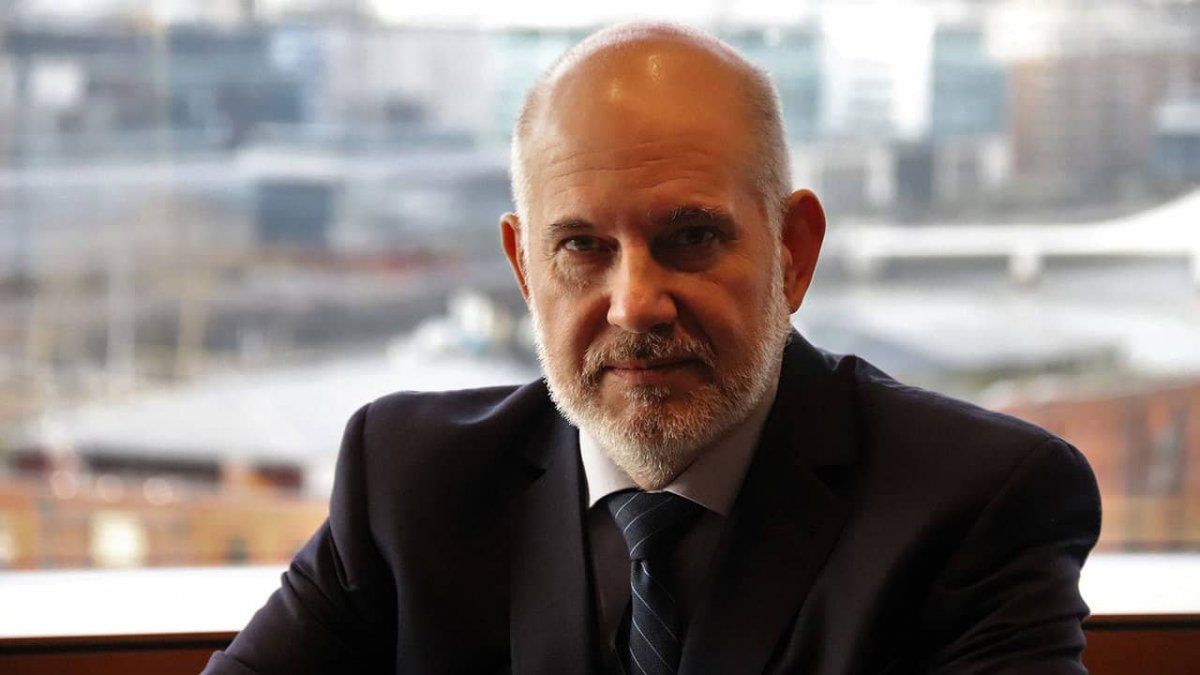Journalist: Do you think that the IMF is going to give the Government the goals for the first quarter as fulfilled?
Louis Seco: I think that from the point of view of the objectives, the goals of the net reserves were met to the limit but they were met, those of emissions as well and regarding those of fiscal deficit, I think it will be necessary to see if they allow you to account for the proceeds of placement on torque adjustable by CER.
Q.: Do you think there may be objections to that accounting?
SL: There is about $100,000 million that can be objected. Without them the goal could not have been reached. I do not believe that the IMF is willing to expose a breach by Argentina in the first quarter of the agreement’s validity. I assume that they will notice the problem and suggest that it not be repeated in the future. I don’t think it will get to the point where a waiver has to be requested.
P.: In the IMF they assure that there is not going to be a revision of the goals. What is your view on this?
SL: In terms of reviewing goals, I guess now is not the time. In other episodes, the goals were immediately reviewed, as was the case with the 2018 agreement signed by Mauricio Macri. What is certain is that there are goals that seem more demanding as time goes by. Then we will see if they are fulfilled or not. Today, given the conditions of what happened in the first quarter, all the goals look more demanding than when they were signed.
Q.: They were already demanding when the agreement was signed and now with the changes brought about by the War they seem to be much more so…
SL: That is why I suspect that the Fund must be comfortable with it. I don’t know if the organization is going to want to show condescension towards Argentina.
Q.: How are the internal factors playing in Argentina?
SL: It seems to me that the conflict within the Government makes any measure to reduce spending more difficult. Moreover, if you look at , the main novelty that the first quarter brought is that public spending is growing at 80% per year, that is, 20 points above inflation. Clearly the worst news is that public spending does not loosen. A President who is perceived as weaker always finds it more difficult to make an adjustment.
Q.: Is this increase in spending related to social plans and subsidies or is it something else?
SL: I think it’s all components. Economic subsidies hit an important jump in March, also showing that it is very difficult to control spending on subsidies. It is not something in particular. All spending components are growing at very high rates. The political situation raises a question mark about the government’s ability to stand on public spending.
Q.: Is it convenient for the Government to have inflation?
SL: There is a fallacy going around about that that is not entirely true. It is assumed that with inflation it is easier to meet the deficit goals. That’s true if spending is controlled. That is what could not be done until now. It can be done later. That leaves an open question mark.
Q.: How do you see the Central Bank in this context, with respect to the dollar, based on the fact that it was behind in the first quarter?
SL: The commitment to devalue at the same rate as inflation is still a pending task. Interest rates lag behind the rate of inflation. One can say that it is closer. But it all depends on whether you look at the past or future interest rate.
Q.: One of Argentina’s commitments to the IMF is to reach positive interest rates.
SL: There is a discussion about what it means to have positive real interest rates. Depending on what inflation. And something similar happens with the exchange rate. I believe that these are all details that the government and the Central Bank discussed with the Fund, but that were not very precise in the agreement.
Q.: Why are they not accurate?
SL: I think the idea was to take the exchange rate at the end of the period that reflected the variations from December 2021 to 2022 so that inflation would be similar. It remains to be seen if this is done. All this generates a series of doubts that translate into the trap we are in in terms of expectations.
Q.: Is that the main problem today?
SL: The big problem is that expectations are not being deflated because all these commitments assumed by the Government seem to be of dubious compliance and that both the Government and the BCRA are haggling over what they promised.
Q.: Do you suppose that in the Government they are not very convinced of what they signed?
LS.: I think that if inflation in the first quarter had been lower it would have been easier for them. Maybe they got a surprise. If we have to devalue at the rate of inflation and in turn raise the rate, it may not be enough to stop the inflation that one generates by devaluing.
Q.: Is there an anchor that allows expectations to be deflated?
SL: There are no anchors. With what can you anchor expectations? It is clear that with public spending growing at this rate it is not possible. If a signal is not given that they are going to put the middle box in order, it will not be possible.
Q.: Does the context of joint negotiations help as it is happening now?
SL: The last paritarias generate much higher inflationary recognitions. The latest agreements focus on recent inflation and take it forward trying not to lose out on the new threshold or new step.
Source: Ambito
David William is a talented author who has made a name for himself in the world of writing. He is a professional author who writes on a wide range of topics, from general interest to opinion news. David is currently working as a writer at 24 hours worlds where he brings his unique perspective and in-depth research to his articles, making them both informative and engaging.




